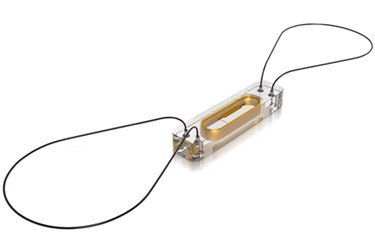St. Jude Earns FDA Approval For First Ever Implantable Heart Failure Monitoring Device
By Joel Lindsey

St. Jude Medical and CardioMEMS have announced FDA approval of a new implantable device designed to provide remote monitoring of vital statistics related to heart failure.
“I believe this strategy has the potential over time to change heart failure,” Lynne Warner Stevenson, director of the Heart Failure Program at Brigham and Women’s Hospital in Boston, said in a press release published on St. Jude’s website. “Not just to lighten the burdens every day or to decrease the number of hospitalizations, but to decrease the grim progression of the disease.”
The device, known as the CardioMEMS HF System, uses a tiny wireless monitoring sensor that is implanted directly into the pulmonary artery (PA) through a non-invasive procedure. Once implanted, the sensor measures PA pressure and makes it possible for patients to transmit this data to healthcare providers.
Because PA pressure is a primary indicator of worsening heart failure, regular monitoring can be an effective way to proactively treat the condition. Researchers involved in the development of the new device claim that the CardioMEMS HF System could help healthcare providers more effectively manage medications and other forms of treatment before heart failure symptoms escalate.
“Unlike tele-monitoring of weight and blood pressure, transthoracic impedence or intensified clinic follow-up, the CardioMEMS HF System is the only FDA-approved monitoring technology that has demonstrated the ability to significantly reduce heart failure hospitalizations in a large-scale clinical trial,” said Eric S. Fain, group president of St. Jude Medical. “This one-time implant, delivered using a catheter-based procedure, will allow physicians to proactively manage pressures to an individually tailored target rather than reacting to symptoms once a patient’s heart failure has worsened.”
FDA approval of the device comes on the heels of a clinical test titled CHAMPION (CardioMEMS Heart Sensor Allows Monitoring of Pressure to Improve Outcomes in NYHA Class III Patients), the results of which have been published in The Lancet.
The test focused on using the CardioMEMS HF System to assist in the treatment of patients who had been hospitalized for heart failure in the previous 12 months. At the end of the trial period, researchers concluded that the device had contributed to a “clinically significant 28 percent reduction in the rate of heart failure hospitalizations at six months, and 37 percent reduction in heart failure hospitalizations during an average follow-up duration of 15 months,” according to the St. Jude press release.
